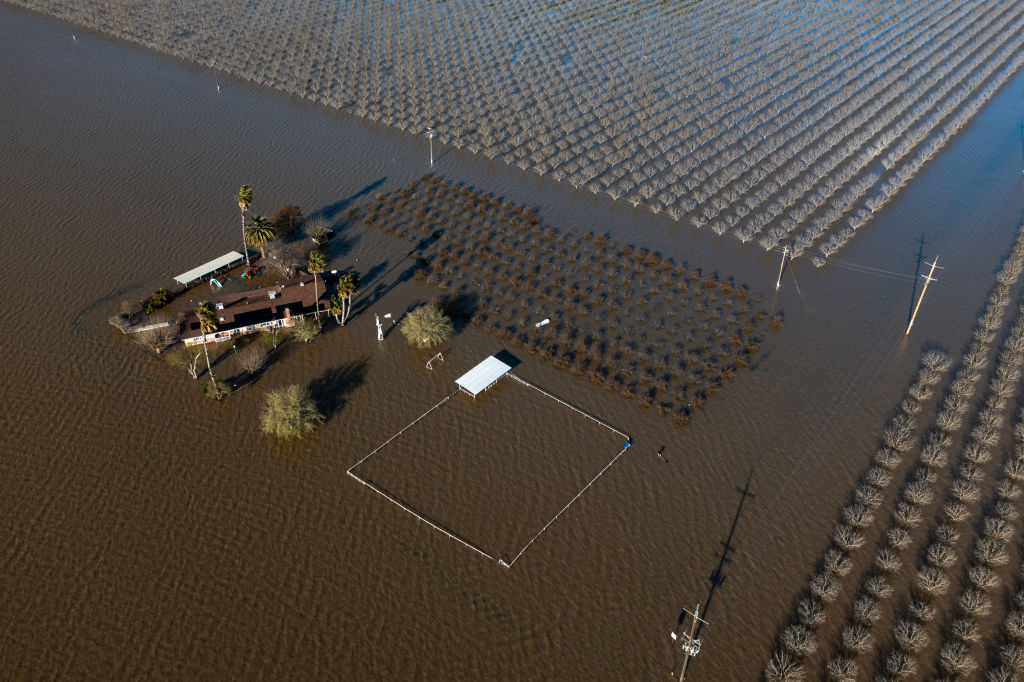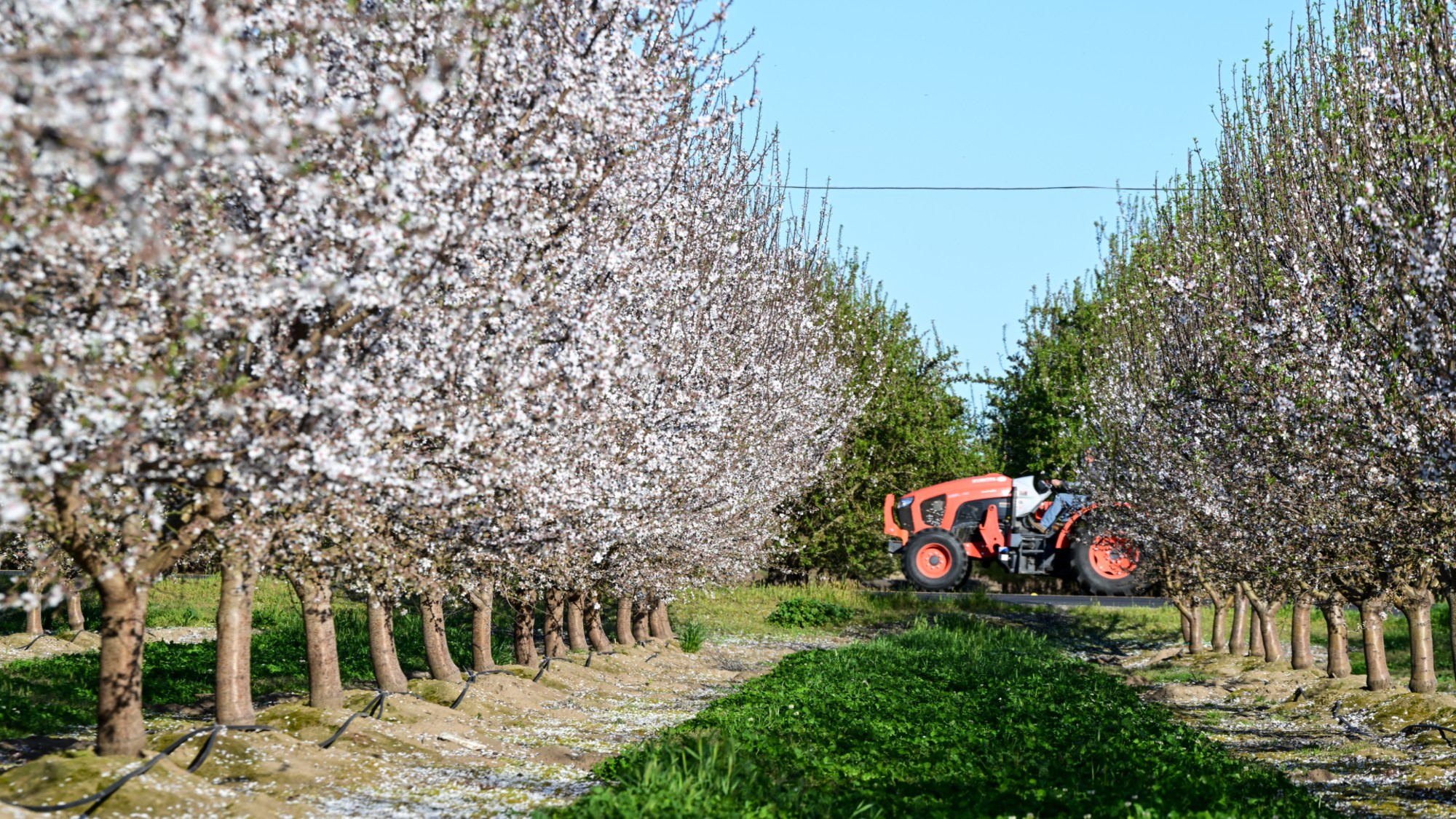The snowmelt in California could cause a long-lost lake to re-emerge


A free daily email with the biggest news stories of the day – and the best features from TheWeek.com
You are now subscribed
Your newsletter sign-up was successful
California's extreme rain and snow may cause a once-lost lake to re-emerge, Axios reports. The season's snowmelt could cause the state's Tulare Lake to return after being dried up for approximately 80 years, according to Newsweek.
Indeed, "there is more and more water pouring into the Tulare Lake Basin and that water is not going to be leaving the basin for the foreseeable future," per Daniel Swain, a UCLA climate scientist. Tulare used to be the largest freshwater lake west of the Mississippi River, and last appeared in 1982.
California has set a record high for snowpack, raising flood concerns for ranchers and farmers as the precipitation melts. "Unfortunately, the reality is all of these areas are likely going to flood eventually this spring as the flooding continues to worsen," Swain continued, adding that there are "some very powerful agricultural interests ... engaging in unilateral actions that might actually harm adjacent communities," namely farmers and low-income regions.
The Week
Escape your echo chamber. Get the facts behind the news, plus analysis from multiple perspectives.

Sign up for The Week's Free Newsletters
From our morning news briefing to a weekly Good News Newsletter, get the best of The Week delivered directly to your inbox.
From our morning news briefing to a weekly Good News Newsletter, get the best of The Week delivered directly to your inbox.
And the return of Tulare Lake will spell trouble for the surrounding area, which is likely to become inundated with water, writes the San Francisco Chronicle. "There's a lot of uncertainty with the snowmelt," explains Greg Gatzka, city manager of Corcoran, California, one of the cities near the lake. "If it becomes too much water, it's a whole different situation."
"These are rural communities of color that are home to the people who grow and pick the produce of the Central Valley, and we're bearing the brunt," said Dezaraye Bagalayos, director of program coordination for the Allensworth Progressive Association. Climate change has made the risk of excessive snowpack and melt higher, leaving communities to deal with flood prevention themselves. "This can't continue to happen. It's not acceptable for us to get flooded up."
A free daily email with the biggest news stories of the day – and the best features from TheWeek.com
Devika Rao has worked as a staff writer at The Week since 2022, covering science, the environment, climate and business. She previously worked as a policy associate for a nonprofit organization advocating for environmental action from a business perspective.
-
 The ‘ravenous’ demand for Cornish minerals
The ‘ravenous’ demand for Cornish mineralsUnder the Radar Growing need for critical minerals to power tech has intensified ‘appetite’ for lithium, which could be a ‘huge boon’ for local economy
-
 Why are election experts taking Trump’s midterm threats seriously?
Why are election experts taking Trump’s midterm threats seriously?IN THE SPOTLIGHT As the president muses about polling place deployments and a centralized electoral system aimed at one-party control, lawmakers are taking this administration at its word
-
 ‘Restaurateurs have become millionaires’
‘Restaurateurs have become millionaires’Instant Opinion Opinion, comment and editorials of the day
-
 How climate change is affecting Christmas
How climate change is affecting ChristmasThe Explainer There may be a slim chance of future white Christmases
-
 Blue Origin launches Mars probes in NASA debut
Blue Origin launches Mars probes in NASA debutSpeed Read The New Glenn rocket is carrying small twin spacecraft toward Mars as part of NASA’s Escapade mission
-
 Why scientists are attempting nuclear fusion
Why scientists are attempting nuclear fusionThe Explainer Harnessing the reaction that powers the stars could offer a potentially unlimited source of carbon-free energy, and the race is hotting up
-
 Dinosaurs were thriving before asteroid, study finds
Dinosaurs were thriving before asteroid, study findsSpeed Read The dinosaurs would not have gone extinct if not for the asteroid
-
 Canyons under the Antarctic have deep impacts
Canyons under the Antarctic have deep impactsUnder the radar Submarine canyons could be affecting the climate more than previously thought
-
 SpaceX breaks Starship losing streak in 10th test
SpaceX breaks Starship losing streak in 10th testspeed read The Starship rocket's test flight was largely successful, deploying eight dummy satellites during its hour in space
-
 NASA is moving away from tracking climate change
NASA is moving away from tracking climate changeThe Explainer Climate missions could be going dark
-
 A rat infestation is spelling trouble for the almond industry
A rat infestation is spelling trouble for the almond industryThe Explainer The infestation has affected at least 100,000 acres in California
